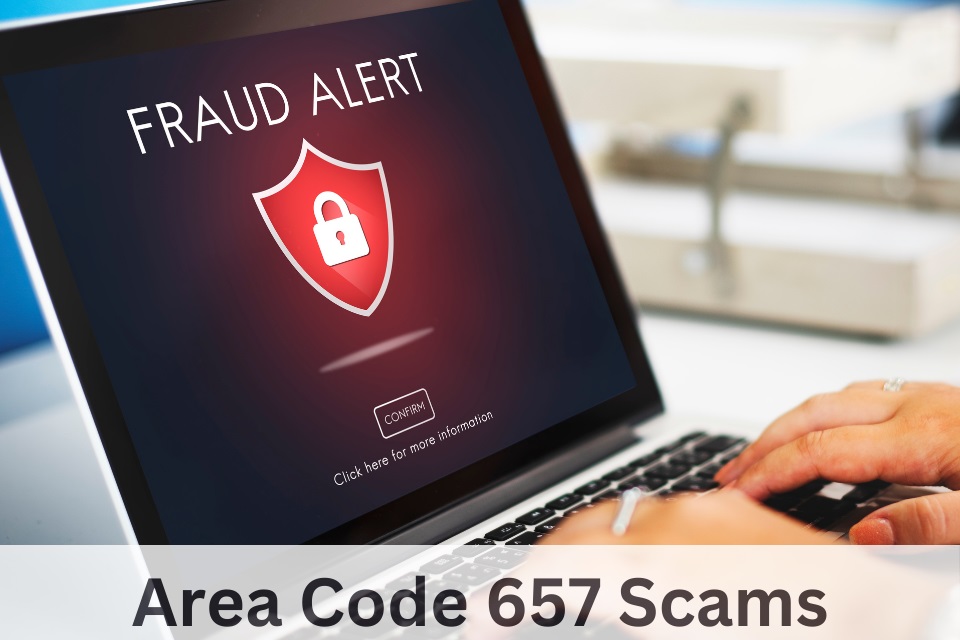Do you reside in the United States? You must have encountered “Area Code 657 Scams”. Citizens must be aware of this new scam and avoid callers with code 657.
In this write-up, you will learn about Area Code for 657 scams and how to save yourself from indulging in one.
Receiving a spam call isn’t new, many people have received spam calls or text messages earlier. But the spam number is significant this time, with a specific area code of 657. Now, any number with the prefix 657 is not considered trustworthy in America.
Anyone who receives a message or a call immediately blocks the number and reports it. These scammers intend to steal card details to misuse and sell your information for good money.
What Is Area Code For 657 Scams?
This code 657 serves in most prominent cities: Anaheim, Los Angles, California, Santa Ana, Torrance, and Ontario. But due to its terrible reputation, this code is said to be avoided at all costs.
Scammers use this code to contact residents of the United States and ask them for the following information –
- USP delivery scams
- Job interview
- Gift and much more.
The trick behind these calls or messages is “they are not done via smartphone.”
For example, people usually receive a message or a call for job recruitment with 657 area codes. These messages usually ask the receiver to click the link and share details for a fake job proposal.
Scams To Expect With Area Code 657 Number
Our in-depth research found that the count of spam calls or text messages with the prefix 657 has reached hundreds of people. It’s high time, people should be aware of possible scams done to you. Below we have shared a list of possible scams you can expect out of the 657-area code.
Fake Offers
People who received scam calls or messages stating that “it’s something new. Scammers now offer gifts or coupons to fool people” and “claim to offer cash if you take up the survey.” But instead of this survey, they take your information and use it for personal use.
Package Delivery Scam
Other recipients who received messages or calls stated, “the sender was said to be calling from USP, asking for package delivery details.”
System Warning
Some recipients state, “they received a warning message against system failure,” which says we have found vulnerabilities in your device. Click the link to secure your device.
Fake Job Appointment
These scammers also send emails and ask the receiver to click the link mentioned to fix a job interview they still need to apply for.
Lotto Scam
Lotto scams are pretty old; the only thing which changes is “the technique or the tactics.” These days, a person will get a random call saying, “they have won a lottery of so and so amount.” In return, they ask for your details but do not trust them. It’s a scam! You won’t get any money. Instead, your information will be used for their profit.
IRS Rip-Off
These frauds involve a scammer who pretends to be from IRS, telling innocent people that they owe back taxes, if they do not pay them right away, they will be arrested”. However, you don’t need to panic; this is also a scam. In reality, the person does not owe any tax or amount to anyone.
Charity Scams
This is one of the most fraudulent scams! When a person calls us and asks for money for a specific cause, we transfer it to charity. But do we know whether our money is being used for charity? Although it’s tough to see if it’s a scam or charity, this money usually won’t go to charity but is used for personal use.
The Reality Behind These Scams
These scammers work so smoothly that sometimes it becomes difficult to track them. In FGT scams, the “First Generation Scams” company buys real phone numbers from telephone operators or a phone company. Now, if any consumer calls, the call goes through Public Switched Telephone Network (PSTN), a network used to switch centers and a long-distance line connecting all consumers to a single call center. Which appears as if the customer is calling with their local phone number.
And that’s how scammers run Area Code for 657 Scams!
Top Callers Reported With Area Code 657 Scams?
There are a few numbers that have been listed as spam due to suspicious use of them.
- 657-235-9124
- 657-286-6094
- 657-230-7532
- 657-202-5151
- 657-230-7441
- 657-321-5186
- 657-235-5046
- 657-202-9364
- 657-220-1616
These top reported callers have a significant prefix 657, which is said to be involved in the scam.
We recommend users stay alert of these scams and avoid answering calls or clicking on links attached to any messages or emails.
Who Is At High Risk Of Getting Scammed With Area Code 657 Scam?
Although these scammers target anyone & everyone, their main focus is to target – celebrities, high-profile individuals, or athletes. And the reason is quite simple: these personalities will likely have a lot of personal data and financial resources, which can benefit them significantly.
Also, the elderly age group! As they need attentiveness, it’s easy to misguide them and crack some vital information. This is why our grandparents are an easy target for scammers to earn a considerable return.
Takeaway
These messages are nothing but a scam to fool innocent people and take leverage of their money. With the increased fraudulent activities, these scams have created a buzz around America. We recommend staying alert and avoiding clicking on any suspicious link you receive from an anonymous sender.
Specifically, avoid indulging in any number with Area Code 657. If you confront such messages or calls, report them immediately and do not share any of your details with anyone.
